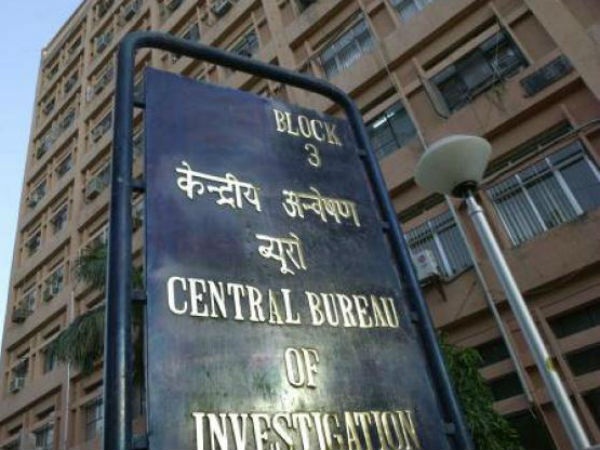
‘General consent’ withdrawn: Not the end of the road for CBI
New Delhi, Nov 19: The states of Andhra Pradesh and West Bengal withdrew the general consent to the CBI for probing cases in the respective states. The two states alleged that the CBI was being used by the Centre to target opposition parties in an unfair manner.

The two states are well within its rights to withdraw general consent. The CBI is governed by the Delhi Special Police Establishment Act under which the consent of a state government is mandatory to conduct a probe in that state.

When a general consent is withdrawn, it would mean that the CBI will not be able to register any fresh case involving a central government employee or a private person in that state. It would mean that the CBI official loses all powers of a police officer as soon as they enter that state.
The AP order:
The Andhra Pradesh government in its order said, "in exercise of power conferred by Section 6 of the Delhi Special Police Establishment Act, 1946 (Central Act No 25 of 1946), the government hereby withdraws the general consent accorded in GO No 109 Home (SC.A) Department dated August 3, 2018 to all members of the Delhi Special Police Establishment to exercise the powers and jurisdiction under the said Act in the State of Andhra Pradesh.''
What happens to ongoing probes:
The ongoing probes are unlikely to be affected. The CBI would still have the power to probe old cases registered when the general consent existed. The question as to whether the CBI can carry out a search in either of the two states remains ambiguous.
However officials explain to OneIndia that there are legal remedies to overcome this ambiguity. The CBI can approach a court and obtain a search warrant.
What happens to the fresh cases:
The withdrawal of general consent would only bar the CBI from registering a case within the jurisdiction of AP and West Bengal. The CBI can still file cases in New Delhi and continue to probe people inside the two states.

In this context one must look at the order of the Delhi High Court passed on October 11 2018. This related to a case of corruption in Chhattisgarh. The Court ordered that the CBI could probe the case without prior consent of the Chhattisgarh government since the case was registered in Delhi. The Court said that the CBI could probe anyone in a state that has withdrawn general consent if the case is not registered in the state.
The CBI could still register cases in Delhi provided some part of the offence is connected with Delhi and still arrest and prosecute ministers or MPs. However the Central Government employees would be protected in such cases, where the general consent is withdrawn.
Incidents in the past:
This is however not the first instance when general consent by a state has been withdrawn. The states of Nagaland, Sikkim, Chhattisgarh and Karnataka have done it in the past.
In 1998, the J H Patel led Janata Dal government had withdrawn consent. In 1999, when S M Krishna of the Congress came to power the order continued and was not revoked.
The general consent remained withdrawn for nearly 8 years as a result of which the CBI had to seek permission of the state government in each and every case and also for every search it conducted.


 Click it and Unblock the Notifications
Click it and Unblock the Notifications


































